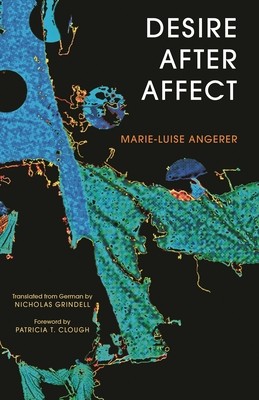
- We will send in 10–14 business days.
- Author: Marie-Luise Angerer
- Publisher: Rowman & Littlefield Publishers
- ISBN-10: 1783481307
- ISBN-13: 9781783481309
- Format: 14.2 x 21.8 x 1.8 cm, kieti viršeliai
- Language: English
- SAVE -10% with code: EXTRA
Reviews
Description
Desire is a term often used in conjunction with the subject. This desire is directed towards the real, which is defined as the generic core of the linguistic order. As a result of the focus on affect, the three terms-desire, the subject, the real-have been fundamentally shaken up and called into question. Affect, in various forms, is now a matter of concern across a wide range of disciplines including neuroscience, psychology, the humanities, and social sciences. All of these fields have a declared interest in affect, in emotions and sensations, in pathos, passions, and the senses. Desire After Affect argues that this affective euphoria cannot be explained solely in terms of a repression of language, logos, and reason. It argues that the affective turn is symptomatic of a fundamental shift in modes of thinking about the human condition. It explores what this means for the human and the posthuman, animal and machine, and calls for a new theory of subjectivation, a philosophy of media affect.
EXTRA 10 % discount with code: EXTRA
The promotion ends in 23d.03:38:59
The discount code is valid when purchasing from 10 €. Discounts do not stack.
- Author: Marie-Luise Angerer
- Publisher: Rowman & Littlefield Publishers
- ISBN-10: 1783481307
- ISBN-13: 9781783481309
- Format: 14.2 x 21.8 x 1.8 cm, kieti viršeliai
- Language: English English
Desire is a term often used in conjunction with the subject. This desire is directed towards the real, which is defined as the generic core of the linguistic order. As a result of the focus on affect, the three terms-desire, the subject, the real-have been fundamentally shaken up and called into question. Affect, in various forms, is now a matter of concern across a wide range of disciplines including neuroscience, psychology, the humanities, and social sciences. All of these fields have a declared interest in affect, in emotions and sensations, in pathos, passions, and the senses. Desire After Affect argues that this affective euphoria cannot be explained solely in terms of a repression of language, logos, and reason. It argues that the affective turn is symptomatic of a fundamental shift in modes of thinking about the human condition. It explores what this means for the human and the posthuman, animal and machine, and calls for a new theory of subjectivation, a philosophy of media affect.


Reviews